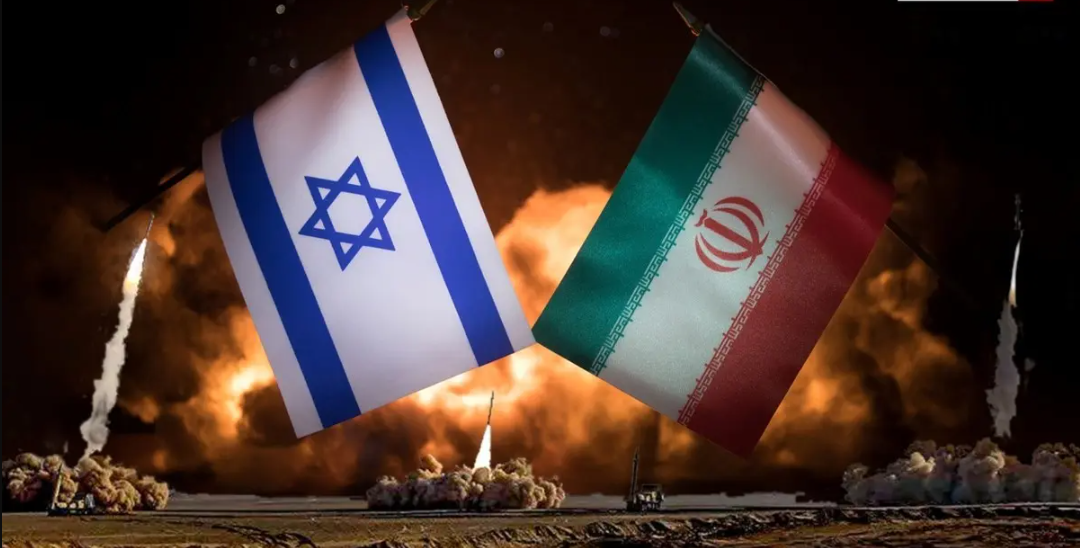Escalation continues between Israel and Iran, with mass evacuations.
Escalation Continues Between Israel and Iran
Escalation continues between Israel and Iran, with mass evacuations
Trump decided to leave the G7 summit early after saying "everyone must evacuate Tehran immediately." A US aircraft carrier diverted its course to the Middle East.
Israel and Iran exchanged missile fire and threats for the fifth consecutive night on Tuesday, raising fears of an escalation between the two bitter enemies. US President Donald Trump called for the "immediate evacuation of Tehran," while mass evacuations from both countries took place.
Despite calls from the international community for an end to hostilities, neither side shows any signs of de-escalating the military confrontation that has been ongoing since Friday, when Israel launched an attack on Iran with the stated goal of preventing it from obtaining a nuclear bomb.
Following a new wave of Israeli strikes, one of which targeted Iranian national television, both countries activated their air defenses repeatedly overnight, while Western capitals appear to be preparing for further escalation. Several countries are evacuating their citizens from Israel and Iran amid the escalating conflict between the two countries, which has included mutual missile strikes and a rising number of civilian casualties.
China, through its embassy, urged its citizens to leave Israel as soon as possible, while the United States announced it was deploying "additional resources" to the Middle East to bolster its "defense posture," according to Defense Secretary Peter Hegseth. The USS Nimitz, which had been sailing in the South China Sea, was diverted to the Middle East on Monday, according to the Pentagon.
For his part, Trump, who decided to leave the G7 summit early Tuesday morning due to events in the Middle East, said, "Everyone must evacuate Tehran immediately." He added in a post on his Truth Social platform: "Iran should have signed the deal when I asked them to sign. What a waste of human life. Simply put, Iran cannot have a nuclear weapon."
Sirens sound in Israel
Twice at dawn on Tuesday, sirens sounded in several areas of Israel, particularly in the north, after the army announced it had "detected missiles launched from Iran toward Israeli territory." However, residents were informed shortly afterward that they were free to leave their shelters.
According to Prime Minister Benjamin Netanyahu's office, Iranian attacks on Israel have killed at least 24 people since Friday. The Israeli strikes, which primarily targeted Tehran, have killed at least 224 people and wounded more than 1,000 others in Iran, according to an official toll released Sunday.
The Iranian Red Crescent announced the deaths of three of its members in an Israeli strike while they were on duty in the capital, Tehran, on Monday. Iranian national television was briefly interrupted by an Israeli attack on its building.
"Changing the Face of the Middle East"
Netanyahu asserted Monday evening that Israel is "changing the face of the Middle East" with its campaign of strikes against Iran, on the fourth day of the escalation between the two hostile countries.
During a televised press conference, he presented what he described as successes achieved since the start of the attack on Iran, most notably the killing of a number of senior Iranian military and security leaders, vowing, "We will eliminate them one by one."
He also spoke of "good coordination with the United States" regarding Israel's military objectives against Iran. He added that Iranians' perception of their government has changed, saying they see it as "much weaker than they thought." He believed that the assassination of Iranian Supreme Leader Ali Khamenei would "put an end to the conflict."
"Stop the War"
During the G7 summit, French President Emmanuel Macron called on Monday for an end to strikes against civilians in Iran and Israel, warning that attempting to force regime change in Iran would be a "strategic mistake." He added, "If the United States can achieve a ceasefire, that would be a very good thing."
For his part, Iranian Foreign Minister Abbas Araqchi said that Israeli attacks against his country "deal a blow" to diplomacy during a phone call on Monday with his French, British, and German counterparts, as well as the European Union's foreign policy chief. The Iranian foreign minister said on Monday that the United States could stop Israeli attacks on Iran "with a single phone call."
















The continued escalation between Israel and Iran is causing significant losses in lives and infrastructure for both countries, and has repercussions for the war in the Middle East.
ReplyDeleteThe war between the two countries, Israel and Iran, is a comprehensive destruction, killing innocent people and destroying the economies of both countries.
ReplyDelete